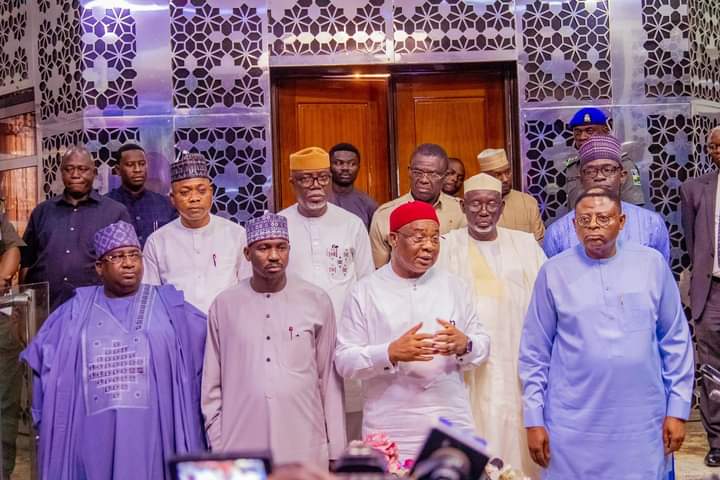As of now, 27 states in Nigeria, including the Federal Capital Territory, have yet to establish committees to implement the recently approved ₦70,000 minimum wage.
The states lagging behind include Plateau, Kebbi, Sokoto, Zamfara, Nasarawa, Bayelsa, Osun, Ekiti, Benue, Enugu, Taraba, Gombe, Kogi, Adamawa, Imo, Ebonyi, Oyo, Akwa Ibom, Bauchi, Katsina, Kaduna, Cross River, and Yobe.
On the other hand, seven states—Kano, Kwara, Osun, Borno, Jigawa, Ondo, and Abia—have made progress by setting up implementation committees. Among these, Lagos and Edo have claimed they are already paying the new minimum wage.
Lagos, Edo Begin Payments
Lagos State Commissioner for Information and Strategy, Gbenga Omotoso, confirmed that the state had been paying above the newly mandated minimum wage even before the law was passed. He stated, “The least-paid state worker in Lagos earned about ₦77,000 before, so we have no issues with the new ₦70,000 minimum wage, as we were already paying more.”
The Edo State Government also announced that it had started paying the new minimum wage.
Kwara, Kano, and Others Set Up Committees
On August 1, 2024, Kwara State Governor AbdulRahman AbdulRazaq, who also serves as Chairman of the Nigeria Governors’ Forum, established an 18-member tripartite committee to work out the modalities for the new minimum wage payment. His Chief Press Secretary, Rafiu Ajakaye, said the committee, comprising representatives from the state government, labor unions, and the Organized Private Sector, had begun deliberations.
Similarly, Kano State Governor Abba Yusuf and Jigawa State Government have set up advisory and implementation committees, respectively. Borno and Ondo state governments have also taken steps to ensure the new wage is implemented.
In Oyo, Commissioner for Information Dotun Oyelade confirmed the state had formed a committee several months ago to advise the government on implementing the new wage structure.
Abia State Governor Alex Otti noted that his state had already formed a committee before the Federal Government signed the bill into law. He added that provisions for the salary increase are being made in line with the new minimum wage.
Gombe, Kogi Express Concerns Over Payments
However, some states are grappling with the financial implications of the new wage structure. Gombe State Governor and Chairman of the Northern States Governors Forum, Inuwa Yahaya, expressed concerns about the state’s ability to meet the new wage due to limited allocations. He stated, “I cannot pay the ₦70,000 minimum wage, and I suspect many other states are in the same predicament.”
Kogi State Commissioner for Finance, Ashiru Idris, also shared uncertainty about when the state would begin implementing the new wage, citing financial constraints.
Negotiations Underway in Plateau, Kebbi
In Plateau, Commissioner for Information Musa Ashoms stated that the government would announce its stance after negotiating with organized labor. Kebbi State Governor Dr. Nadir Idris also expressed a willingness to engage in fruitful discussions with labor unions to ensure civil servants benefit from the new wage.
Sokoto State Governor Ahmed Aliyu reassured civil servants that his administration is committed to implementing the new minimum wage, acknowledging the economic and security challenges facing the country.
States Preparing to Set Up Committees
Osun State Government spokesperson Rasheed Olawale announced that a committee for implementing the new wage would be established soon, reflecting the governor’s commitment to workers’ welfare. Similarly, Delta State Commissioner for Information, Dr. Ifeanyi Osuoza, confirmed that the state would soon set up a committee to address the minimum wage.
Benue State Governor Hyacinth Alia also pledged to pay the new minimum wage while addressing financial leakages to ensure smooth implementation.
This article is sourced from The Punch newspaper, with minor edits and adaptations by The Spectacles for clarity and readability.
